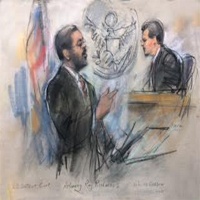New Boston Criminal Lawyer, Michigan
Sponsored Law Firm
-
 x
x

Click For More Info:
-
Richards & Associates, PLLC
200 East Big Beaver Road Troy, MI 48083» view mapCriminal Defense Accomplished Criminal Defense Attorney
If you face criminal charges, you deserve an experienced defense lawyer who has a reputation for winning the tough cases.
800-844-5250
Jerard M. Scanland
✓ VERIFIEDMotor Vehicle, Divorce & Family Law, Criminal, Accident & Injury, Civil & Human Rights
Attorney Jerard Scanland focuses his practice on criminal law, family law, auto-accident, and landlord tenant cases. Having completed training for the... (more)
William Maze
Traffic, Domestic Violence & Neglect, White Collar Crime, DUI-DWI
Status: In Good Standing
Murray A. Duncan
Family Law, Divorce & Family Law, Criminal, Bankruptcy & Debt
Status: In Good Standing Licensed: 40 Years
Blaise A. Repasky
Estate Planning, Family Law, Divorce & Family Law, Criminal
Status: In Good Standing Licensed: 52 Years
Kristina Sheree Nunn
Dispute Resolution, Lawsuit & Dispute, Labor Law, Criminal
Status: In Good Standing Licensed: 17 Years
Kenneth Robert Burger
Premises Liability, Family Law, Criminal, Personal Injury
Status: In Good Standing
Michael Yurkanin
Tax, Criminal, International Intellectual Property, Administrative Law
Status: In Good Standing Licensed: 28 Years
Thomas Richard Ruddy
Other, Family Law, Divorce & Family Law, Criminal
Status: In Good Standing Licensed: 10 Years
 Ray Richards Troy, MI
Ray Richards Troy, MI AboutRichards & Associates, PLLC
AboutRichards & Associates, PLLC Practice AreasSpecializations
Practice AreasSpecializations

